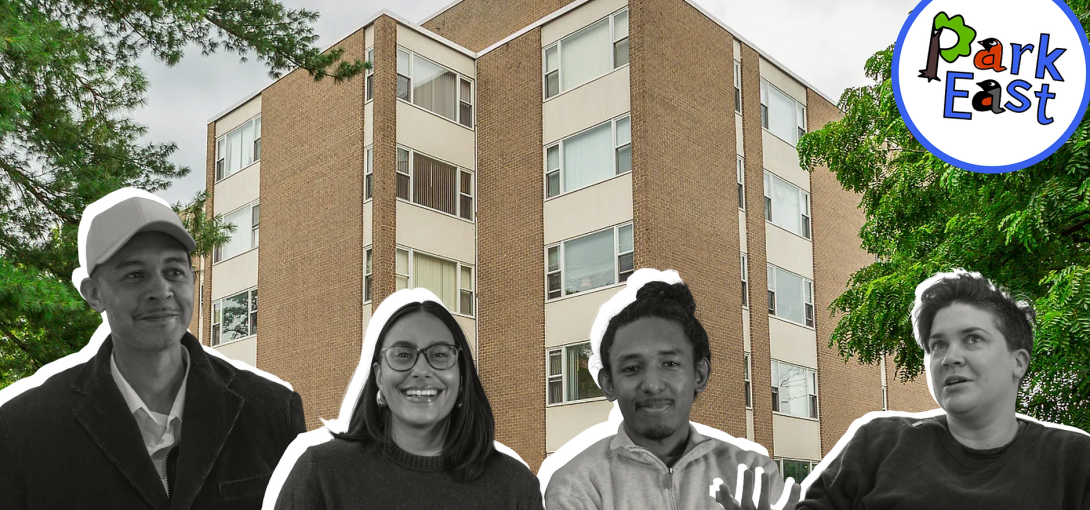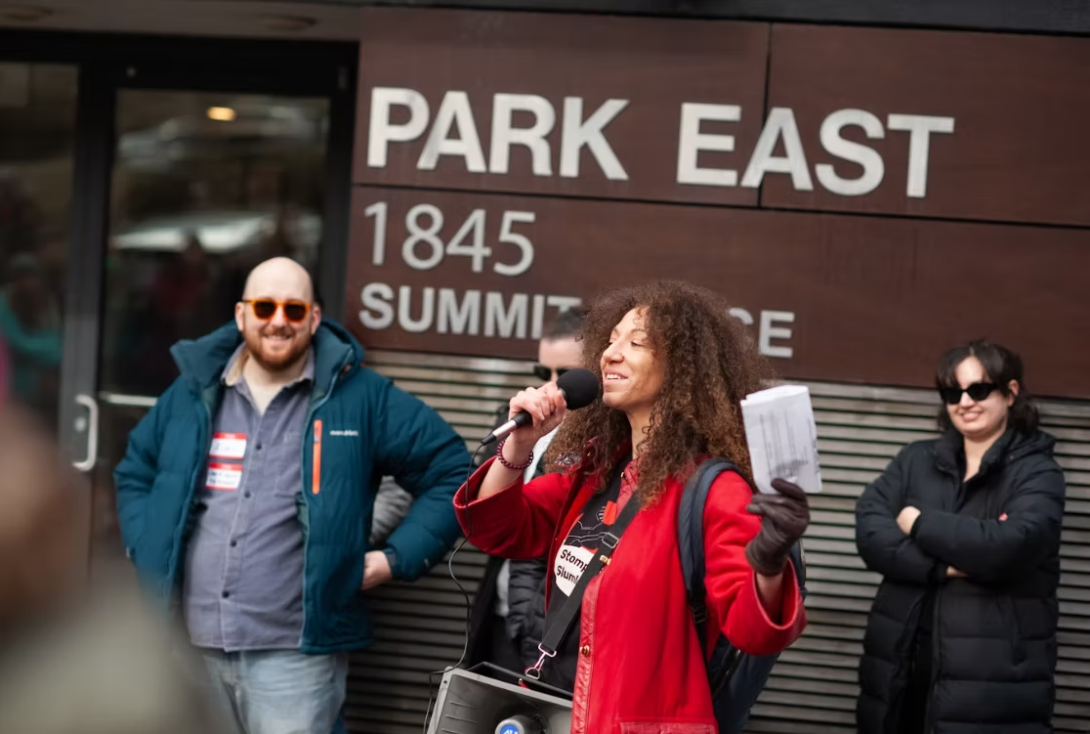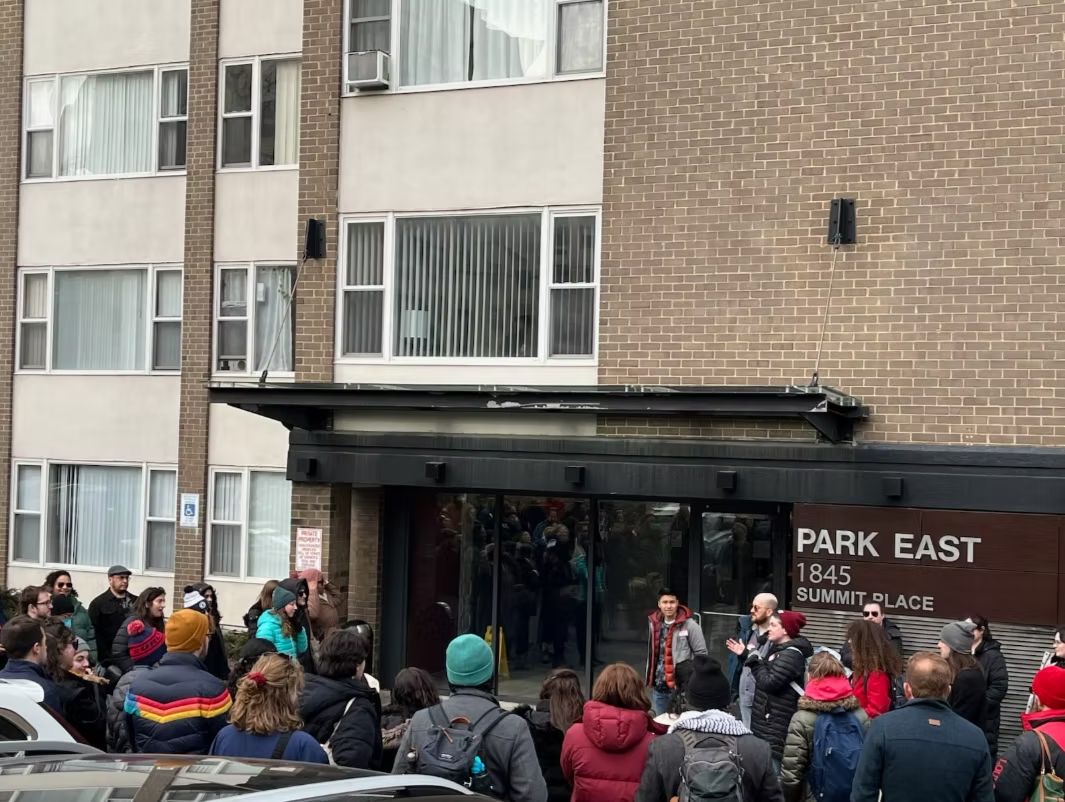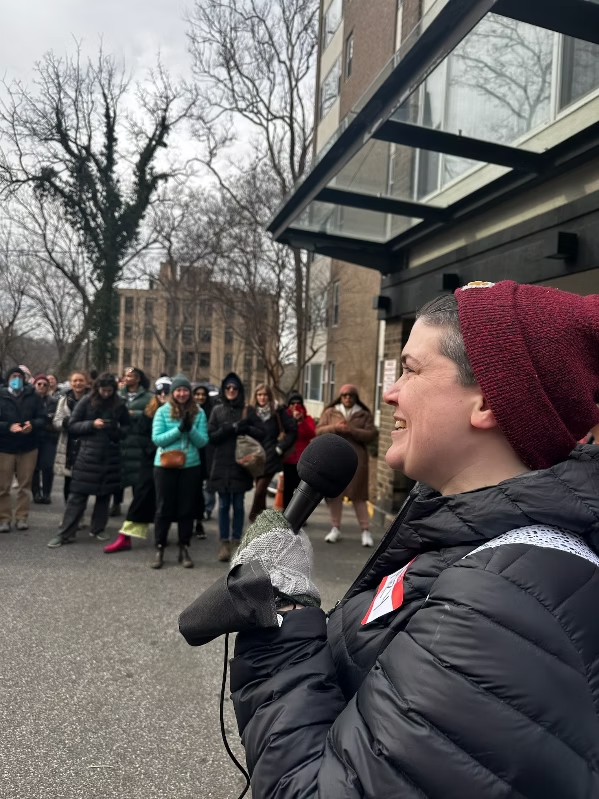
Housing costs in the nation’s capital are rising so quickly that residents are increasingly threatened by being forced out of their homes partly due to housing being seen as an investment to make money, rather than a human right supported by policy to ensure it remains decent and affordable.
The latest building in DC that a developer wants to purchase is Park East, an apartment building that borders Rock Creek Park in the city’s Adams Morgan neighborhood. The 88-unit building, home to more than 150 people, is located in a quiet cul-de-sac on Summit Place NW.
Residents organized a fundraiser on Feb. 22 to buy the building themselves under DC’s Tenants Opportunity to Purchase Act, a hard-fought-for act by residents fighting one of the first waves of gentrification in the 1980s, that requires that tenants living in a building be given the opportunity to buy the building first. DC is believed to be the only jurisdiction in the country with TOPA to protect its residents.
The Park East tenants and DC housing activist-author Amanda Huron1 organized a tour of a few of the affordable cooperatives in the Adams Morgan neighborhood to raise money to pay for Park East’s upcoming inspection required by the federal department of Housing and Urban Development. If all goes as planned in setting up the limited equity co-op, HUD will insure the low-interest loan that will cover 97% of the building purchase cost.
Over 100 people joined the walking tour which gathered at Rabat Park at 16th Street and Columbia Road. The tour went past older housing cooperatives in Adams Morgan -- The Beverly, Champlain Courts, and The Pasadena, a former co-op at Adams Mill Road and Ontario Place NW, a building that immigrants helped to turn into a co-op in the 1980s when tenants desperately fought to keep homes during the first wave of DC gentrification. (See Huron’s article on those historic struggles).

The tour ended at Park East where a member asked for participants to participate in an auction-like fundraiser at different levels.
“We’re really excited about the number of limited equity co-ops in this neighborhood,” said East Park resident Mary Lane, when the crowd of supporters and tour participants gathered in front of their building.
“As you see, this is a really nice neighborhood. Things have changed a lot, and this is now a really expensive neighborhood, and it is getting more expensive, as we all know.”
Lane recounted how the CIM company sent the tenants a notice in July that they were going to sell the property building which under DC law is rent-controlled which limits the amount landlords can increase rent to a maximum 10% and 5% for the elderly and tenants with disability. In practice, rents are determined by the consumer price index plus 2% and Social Security Act Cost of Living Adjustment.
Lane also explained that Park East tenants also talked to a representative of the DC Office of Tenant Advocate, another legacy of housing activism in the 1980s and 1990s. An OTA official advised the tenants that they had first right of refusal. They incorporated as 1845 Summit Pl NW Tenants Association, Inc. to exercise this right and voted to make their building a limited equity cooperative.

Park East has found possible long-term funding to help with the purchase, but getting the money takes time, and there are prerequisites for financial help from HUD. The Park East tenants are raising money for assessments, lab tests to check for asbestos, surveys and drawings of the building, Lane said.
“$11,000 is needed ASAP, like yesterday, to get this inspection done, said Damiana Dendy, who lives in Harvard Village, another building close by owned by the same developer. “HUD is offering the 97% percent coverage of the project fund, which is incredible. So, folks know this is extremely, extremely difficult to accomplish.”
Alexander Monea, another resident, told the crowd of supporters that the fundraiser is needed to help keep the building affordable.
“All of these things are upfront costs required to go through the process to get to the HUD loan that will make this building affordable. And so that's what this fundraiser is all about,” Monea said.
“Any money that we receive will go directly towards funding those costs to secure the funding for this building and create an affordable-housing-complex-powered future. And if a community land trust will have us, will make sure that it stays affordable, even beyond the mortgage duration.”

When it came down to whole point of the tour—raising money to help make the residents the owners, Dendy asked the attendants: “Who can donate $500?”
There were no takers for that high a donation, but one for $250 quickly followed. Many agreed to donate $100 and $50. Others were asked to mail donations.
To support the efforts to help tenants turn their building in a cooperative owned and managed by the residents – something residents all over the country may need to replicate in order to preserve their homes-- support this effort at givebutter.com/park_east-fundraising.
For more information, contact: 1845summit.wixsite.com/parkeast, or email at 1845summit[at]gmail.com.
- 1
Huron is the author of Carving out the Commons: Tenant Organizing and Housing Cooperatives in Washington, DC. It can be ordered online from University of Minnesota Press.
Citations
Ajowa Nzinga Ifateyo (2025). DC Tenants Need $11,000 to Convert their Apartment to a Housing Co-op. Grassroots Economic Organizing (GEO). https://geo.coop/articles/dc-tenants-need-11000-convert-their-apartment-housing-co-op

Add new comment